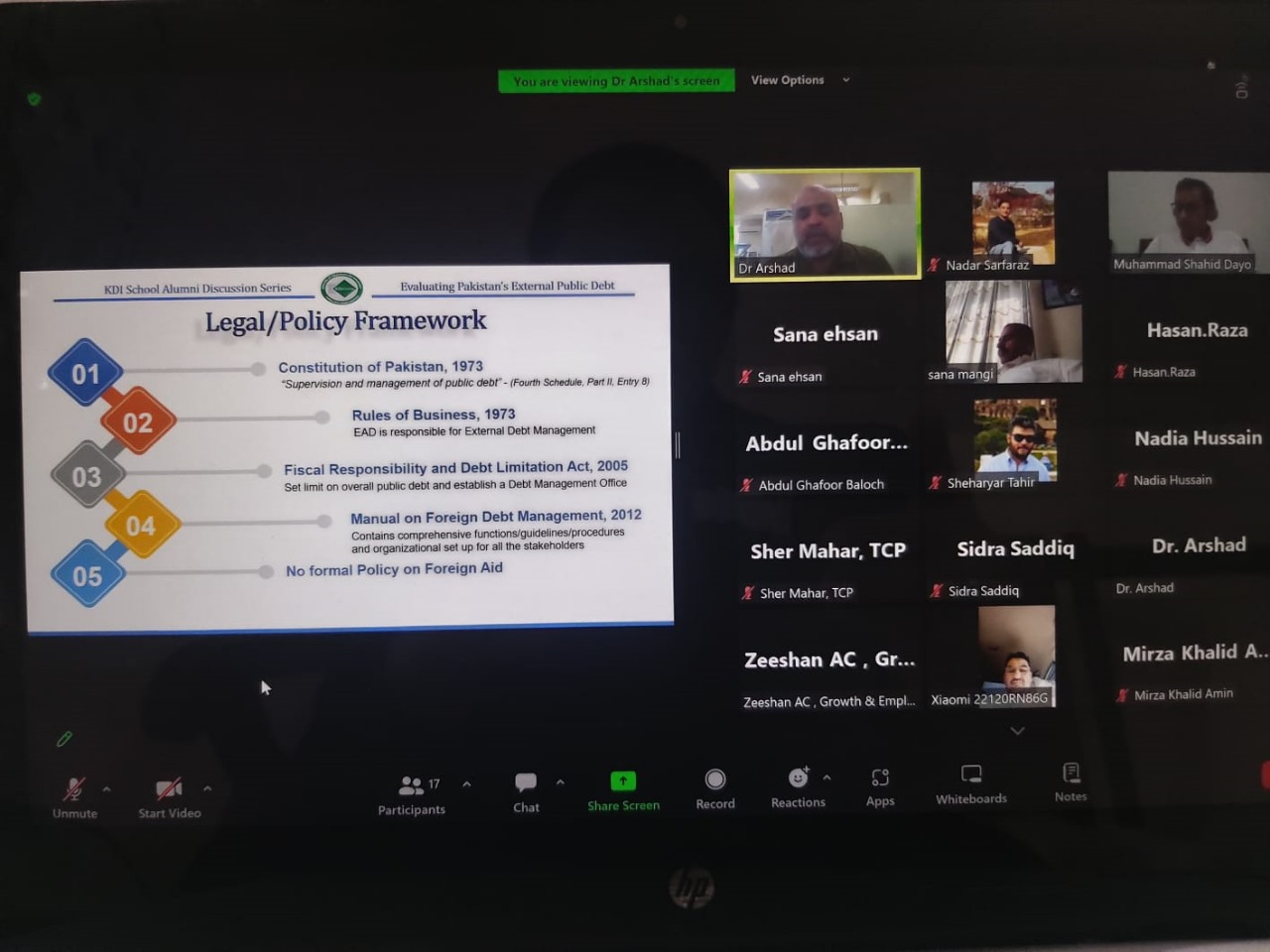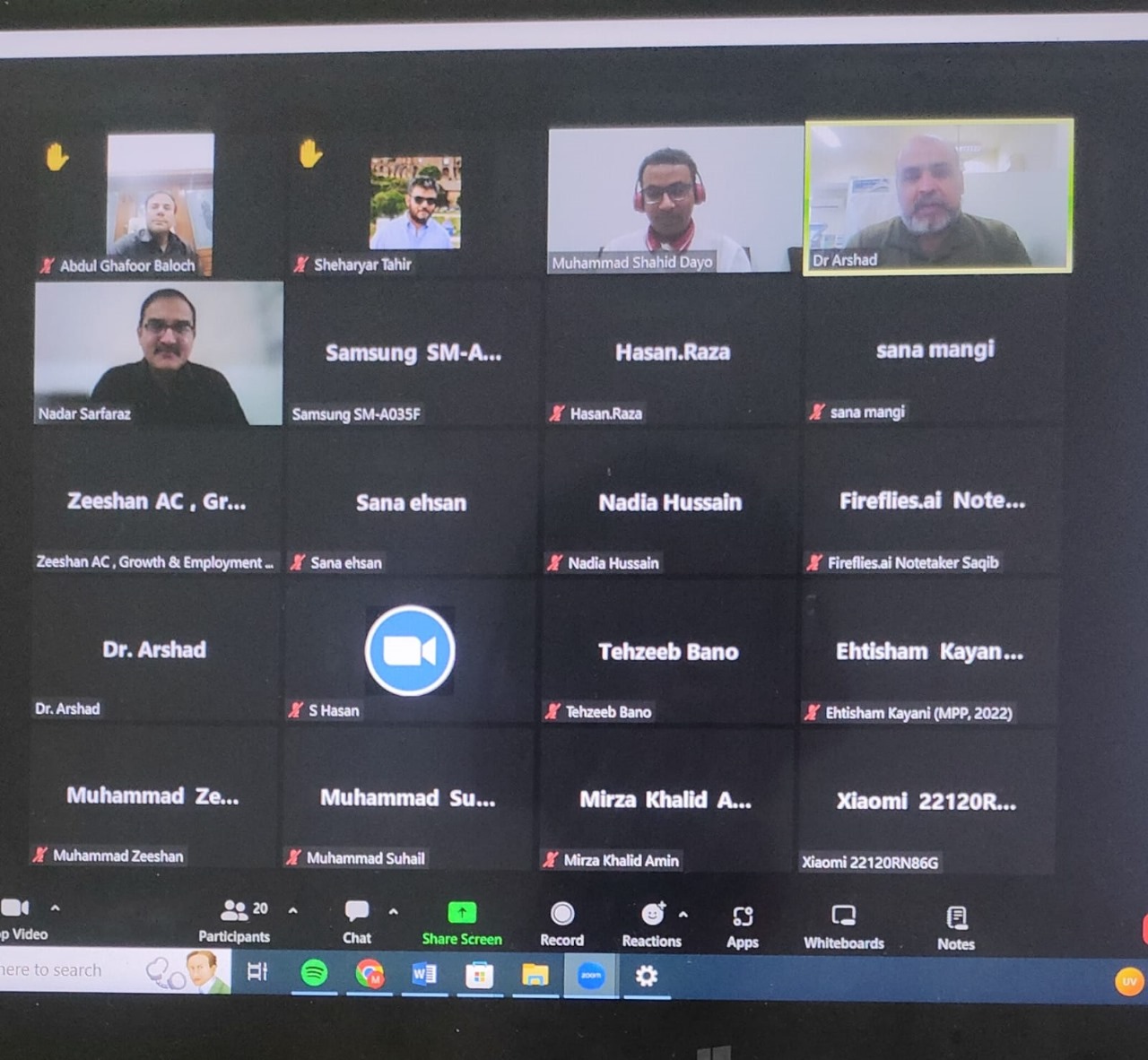
Analyzing Pakistan's Debt Landscape: Insights from the PAK-KDIS Alumni Association
- Date 2024-05-13 11:20
- CategoryResearch and Education
- Hit657
The Pakistan-KDIS Alumni Association recently hosted an online lecture series on March 24, 2024, titled "Evaluating Pakistan's External Public Debt, its Management, Policies, and Practices." Led by Dr. Muhammad Arshad, a respected expert in economic analysis and public policy development, the series aimed to provide insights into Pakistan's debt landscape and offer recommendations for effective management.

Dr. Arshad, with a PhD in Development Policy and a Master of Public Policy from the KDI School of Public Policy and Management, brought both academic rigor and practical experience to the discussion. The webinar drew over twenty alumni, highlighting both interest in and the significance of the topic. During the session, the speaker analyzed the challenges of Pakistan's external public debt and its management. He outlined the legal and regulatory framework, discussed the institutional setup involving ministries and organizations responsible for debt management, and presented the Debt Trap Model to illustrate the risk of default.
Additionally, he discussed the roles of various offices such as the Middle Office, Back Office, and Front Office in debt management. One of the key highlights was the presentation of Pakistan's Debt Trap Model, which illustrated inflows, outflows, and balances over different periods to depict the risk of default and the necessity of managing debt effectively.
The audience actively participated, with Muhammad Imran, MPP (2015), expressing appreciation for Dr. Arshad's analysis: "Bundles of thanks for sharing your thoughts and incisive analysis on a very critical macroeconomic issue of the country. Macro and its diagnostics are always your forte."

Muhammad Shahid Dayo, MPP (2011), said, “I emphasized the importance of promoting knowledge co-creation and capacity building. I applaud the Pakistan-KDIS Alumni Association's effort to bring in speakers from various backgrounds and stress the significance of evidence-based policymaking to address difficult policy issues effectively. Dr. Arshad also emphasized increasing project financing, fiscal consolidation, and diversifying external trade to better understand external debt dynamics.”
In light of the challenges identified, Dr. Arshad proposed recommendations for the way forward. These included the need for major economic policy consensus, fiscal consolidation through tax system restructuring, privatization of state-owned enterprises, interest rate rationalization, and the development of a debt acquisition strategy. Additionally, he emphasized the importance of creating growth centers for generating external earnings and strengthening the debt management system.

In conclusion, the lecture provided valuable insights into Pakistan's external public debt landscape. Dr. Arshad's expertise shed light on the complexities of debt management, offering recommendations for policymakers and stakeholders. As the association plans to extend the series, it aims to continue fostering collaborative learning and knowledge exchange among its alumni, contributing to informed decision-making in economic and public policy matters.
2023 Fall / MDP / Pakistan
qamerali@kdis.ac.kr
Related News
-
Story8 days ago
Building Connections Beyond the Classroom: Gihesha Lokuyaddehige’s Journey as a Volunteer and Student Assistant -
Story9 days ago
Experiencing the Culture while Learning the Language: Andrea’s Unforgettable Chapter of her KDI School Journey -
Story10 days ago
Finding Warmth and Inspiration: Vouch Lang's Journey at KDI School
